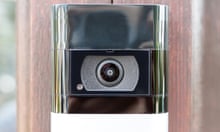The security and intelligence services must acquire “prior independent authorisation” to obtain people’s communications data from telecom providers, a civil rights campaign group has said, after it won a high court challenge.
Liberty hailed a “landmark victory” and said two judges ruled it was unlawful for MI5, MI6 and GCHQ to obtain individuals’ communications data from telecom providers without having prior independent authorisation during criminal investigations.
Lord Justice Singh and Mr Justice Holgate delivered their ruling on Friday after considering Liberty’s challenge at a high court hearing in London. The campaign group took legal action against the Home Office and Foreign Office, with the litigation the latest stage of a wider challenge to provisions of the 2016 Investigatory Powers Act.
The Liberty lawyer Megan Goulding said: “This judgment is a major victory in the fight against mass surveillance. The court has agreed that it’s too easy for the security services to get their hands on our data. From now on, when investigating crime, MI5, MI6 and GCHQ will have to obtain independent authorisation before being able to access our communications data.”
A Liberty spokesperson said independent authorisation would probably come from a judge or the Office for Communications Data Authorisations.
In their ruling, the judges explained how Liberty argued that part of the Investigatory Powers Act did not comply with a requirement for prior independent authorisation of access to communications data.
Lawyers representing ministers disputed Liberty’s arguments but the judges ruled in favour of the complaint, indicating their decision would mean security services operate under the same requirements as police.
“When the security and intelligence agencies act for an ordinary criminal purpose, we cannot see any logical or practical reason why they should not be subject to the same legal regime as the police,” the judges said.
“The mere fact that in general they operate in the field of national security cannot suffice for this purpose. It is the particular function in issue which is relevant.”
They added: “The claimant succeeds on this particular ground of challenge.”









